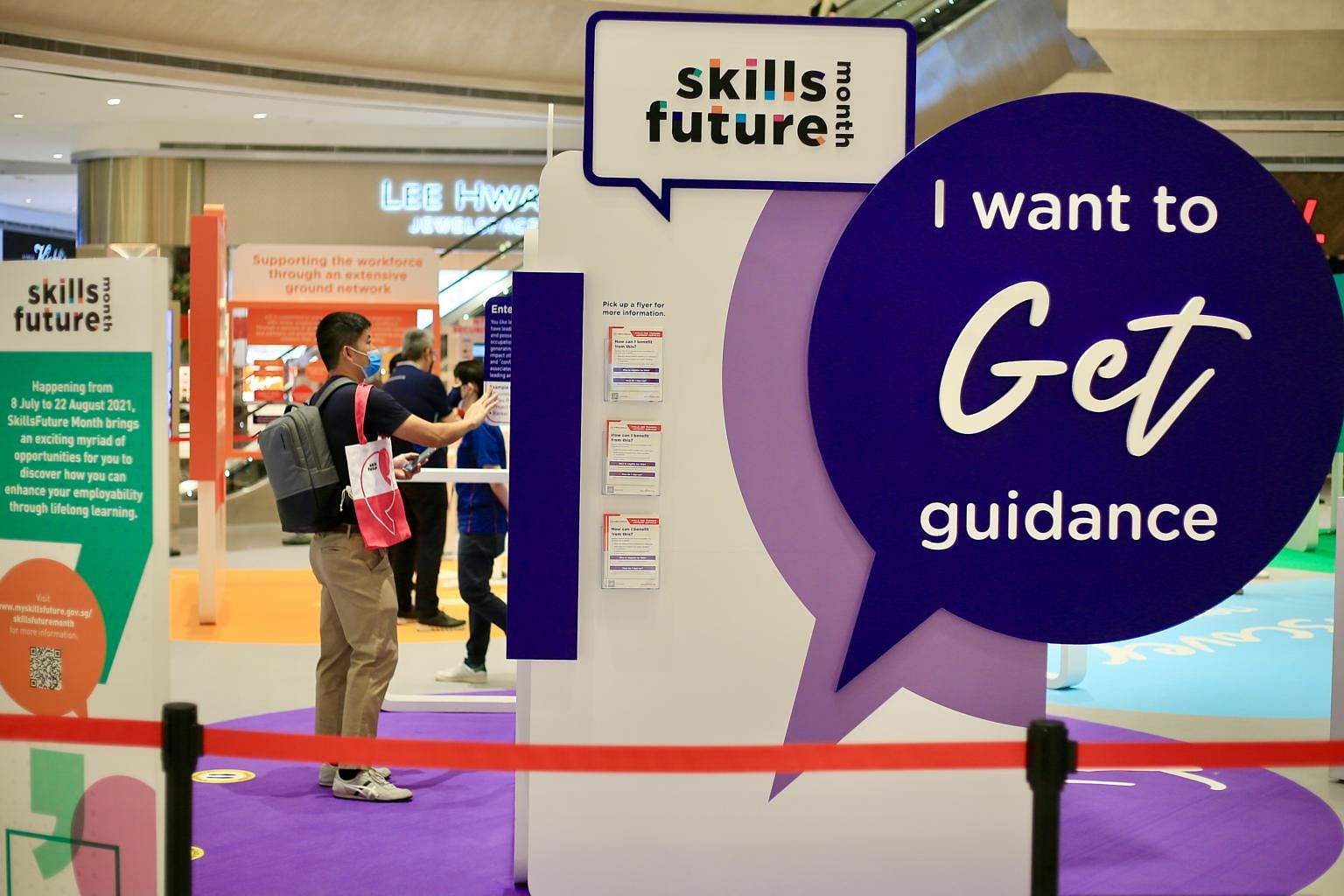Career coaching-related skills in demand amid business and job transformation: Report
Sign up now: Get ST's newsletters delivered to your inbox

The top skills in demand include those involving capability development and performance management.
PHOTO: LIANHE ZAOBAO
Follow topic:
SINGAPORE - Career counselling and coaching-related skills have become more significant and in demand, with business transformation taking place in almost all industries and changes to job roles, said a SkillsFuture Singapore (SSG) report on Saturday (July 23).
The top skills in demand include those involving capability development and performance management as the need rises for personalised advice and coaching to help people enhance workplace performance or prepare for career pivoting.
Career or workplace coaches take on the main responsibility of identifying skills gaps, bridging them, and discovering opportunities for adjacent roles with similar skill requirements, the report said.
Job posting data showed that hiring demand for career coaches increased by 93 per cent from the second quarter of 2021 to the first quarter of 2022. Companies hiring for such roles are largely in the energy, info-communications technology, consulting and recruitment, and financial services sectors.
The Jobs-Skills Quarterly Insights report published by SSG on Saturday, the first in a series, spotlighted skills for professionals involved in the training and adult education sector.
Each quarterly report will focus on a specific sector or job type in the economy that is critical and/or high-growth.
Saturday's report also highlighted two other trends: Education technologies and related skills are powering the training and adult education business; and there is increased recognition of the importance of workplace learning, and the need for capabilities to organise the workplace for learning.
Demand for workplace learning roles has also more than doubled from the second quarter of 2021 to the first quarter of 2022, based on job posting data.
"Workplace learning has grown in importance as it continues to augment the organisation's learning culture while addressing other urgent issues like tackling skills gaps and preparing the workforce with skills required for changing business priorities," the report said.
It noted that in-house training sessions, on-the-job coaching, and self-initiated learning, such as through online platforms, are among the ways workplace learning takes place.
The SSG report said the role of the training and adult education sector is becoming more important as the size of the workforce participating in upskilling or reskilling is expected to increase, and the frequency of participation is likely to intensify.
About 660,000 people took part in initiatives supported by SSG in 2021, higher than the 540,000 seen in 2020.
The Jobs-Skills Quarterly Insights, along with the annual Skills Demand for the Future Economy report first launched last December, is part of efforts to improve SSG's sharing of insights on skills that matter to employers and the economy.
The report was unveiled by Minister of State for Education and Manpower Gan Siow Huang at the SkillsFuture Festival@SUTD, held at the Singapore University of Technology and Design on Saturday.
Mr Tan Kok Yam, chief executive of SSG, said its aim of improving the sharing of skills insights is to better help Singaporeans identify upskilling needs and career opportunities.
He said: "We hope that our sharing can enable individuals, companies and training providers to be more responsive to the rapid changes in skills that matter to the economy.
"We see the development of skills insights as a collective endeavour with industry experts and sector professionals, and we welcome feedback and views on how to improve."

